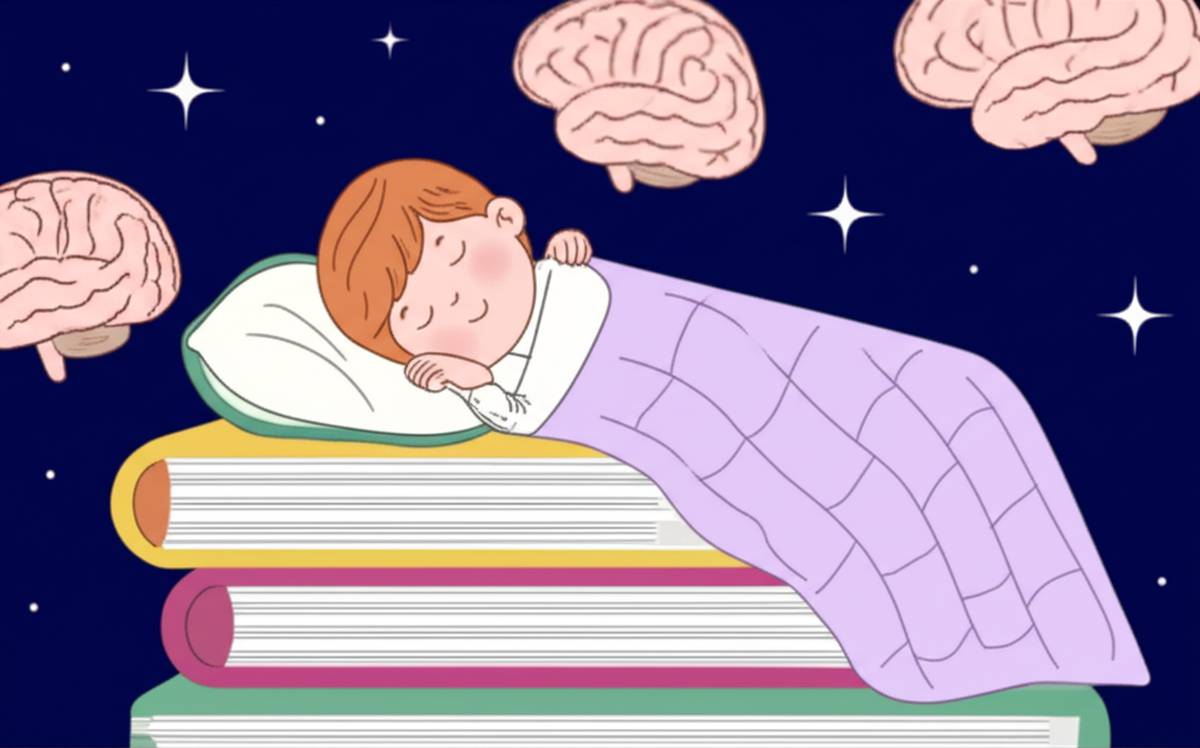The Elusive Quest for Brainpower: Sleep On It!
Ever feel like your brain’s running on dial-up while everyone else is on fiber optic? The culprit might just be your sleep schedule. Or lack thereof. We’re diving deep (pun intended) into how much sleep for optimal brain function: early to bed, early to rise, and why trading Netflix binges for blissful slumber is the smartest move you’ll make all day. Forget brain-boosting supplements; the real secret is as old as time… and your grandma’s nagging.

Why Sleep is Your Brain’s Best Friend
Think of sleep as your brain’s nightly spa treatment. While you’re dreaming of winning the lottery or finally understanding quantum physics, your brain is hard at work, tidying up, filing away memories, and generally making sure you don’t accidentally wear your pants backwards tomorrow.
The Science of Sleep and Cognition
Seriously, there’s actual science here. During sleep, your brain clears out metabolic waste products that accumulate during the day. These waste products, like beta-amyloid (associated with Alzheimer’s disease, according to the Alzheimer’s Association), can interfere with brain function if they’re not removed. Getting enough sleep is like hiring a nightly cleaning crew for your grey matter.
- Memory Consolidation: Sleep helps transfer information from short-term to long-term memory. Cramming the night before an exam? You’re better off getting a good night’s sleep!
- Improved Focus and Attention: Sleep deprivation leads to decreased attention span and impaired cognitive performance. Try focusing on a spreadsheet after pulling an all-nighter – good luck!
- Enhanced Problem-Solving Skills: A well-rested brain is a creative brain. Sleep allows your brain to make connections and come up with innovative solutions.
How Much Sleep Do You Really Need?
The golden number? Generally, 7-9 hours per night for adults. But it’s not a one-size-fits-all situation. Some people thrive on 6 hours, while others need a solid 9 to function like a normal human being. Pay attention to your body and experiment to find your sweet spot. And remember the importance of building wealth through health, by prioritizing your sleep!
Factors Affecting Your Sleep Needs
- Age: Babies and children need significantly more sleep than adults. Teenagers? Good luck getting them out of bed before noon, they probably need it!
- Activity Level: If you’re training for a marathon, you’ll likely need more sleep to recover.
- Health Conditions: Certain medical conditions can affect your sleep needs.
- Lifestyle: Stress, caffeine, and alcohol can all interfere with sleep.
Early to Bed, Early to Rise: Is It Really That Simple?
The old adage has a point. Maintaining a consistent sleep schedule, even on weekends, helps regulate your body’s natural sleep-wake cycle (circadian rhythm). This makes it easier to fall asleep and wake up feeling refreshed. Plus, waking up early gives you a head start on the day – more time for exercise, a healthy breakfast, and tackling your to-do list before the world wakes up. It is important to consider this as part of your steps to financial freedom.
Tips for Embracing the Early Bird Life
- Create a Relaxing Bedtime Routine: Wind down with a warm bath, a good book, or some meditation.
- Optimize Your Sleep Environment: Make sure your bedroom is dark, quiet, and cool.
- Avoid Caffeine and Alcohol Before Bed: These substances can disrupt your sleep.
- Be Consistent: Go to bed and wake up at the same time every day, even on weekends.
- Get Sunlight Exposure in the Morning: This helps regulate your circadian rhythm.
The Consequences of Skimping on Sleep
Chronic sleep deprivation can have serious consequences for your physical and mental health. We’re talking increased risk of heart disease, diabetes, obesity, depression, and a whole host of other unpleasantness. Not to mention, you’ll be a grumpy, unproductive mess. Getting optimal cognitive function is essential for everything, from staying happy and healthy, to building a business.
Sleep Deprivation’s Dark Side
- Impaired Cognitive Function: Difficulty concentrating, making decisions, and remembering things.
- Mood Swings: Irritability, anxiety, and depression.
- Weakened Immune System: Increased susceptibility to illness.
- Increased Risk of Accidents: Drowsy driving is a serious hazard.
- Weight Gain: Sleep deprivation can disrupt hormones that regulate appetite.
Conclusion: Prioritize Your Pillow Time!
So, how much sleep for optimal brain function: early to bed, early to rise? It’s a question worth asking, and even more importantly, acting on. Prioritizing sleep isn’t lazy; it’s a smart investment in your health, happiness, and overall success. Ditch the late-night scrolling and embrace the power of slumber. Your brain (and your boss) will thank you for it!
FAQs: Sleeping Soundly, Explained Simply
How long does it take to see the benefits of a consistent sleep schedule?
Typically, you’ll start to notice improvements in your sleep quality and cognitive function within a week or two of sticking to a regular sleep schedule.
What if I have trouble falling asleep?
Try relaxation techniques like deep breathing, meditation, or progressive muscle relaxation. If the problem persists, consult with a doctor.
Is it possible to “catch up” on sleep?
While you can partially recover from sleep deprivation by getting extra sleep on the weekend, it’s not a long-term solution. Consistent, adequate sleep is always best for optimal brain function.



